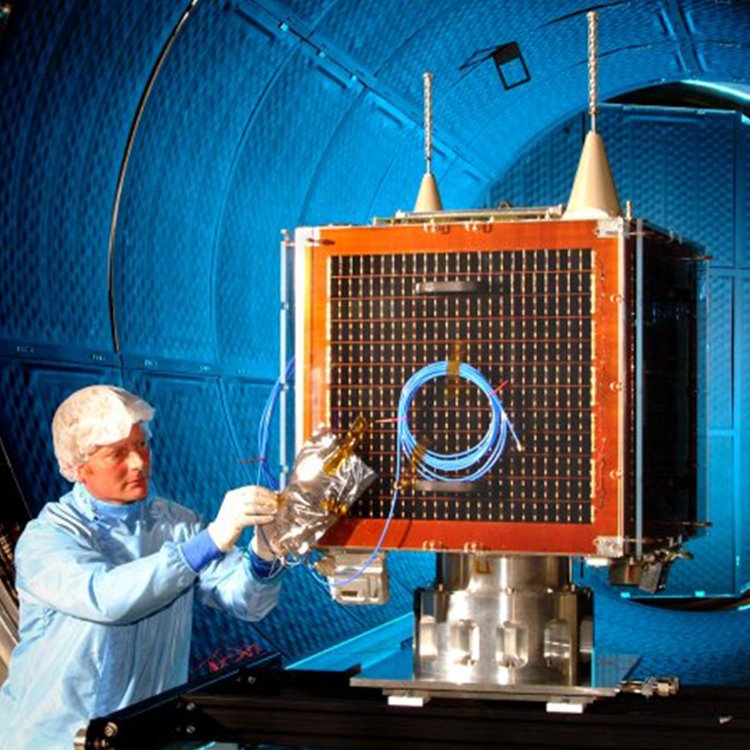NigeriaSat-1: Nigeria’s Leap into Space Technology

In the realm of space technology, Nigeria made a significant stride with the launch of NigeriaSat-1, its first national satellite. Launched on September 27, 2003, from the Baikonur Cosmodrome in Kazakhstan, NigeriaSat-1 marked a pivotal moment for Nigeria’s space program, showcasing the nation’s growing capabilities in satellite technology and its commitment to advancing space science.
Background and Development
NigeriaSat-1 was part of Nigeria’s broader strategy to leverage space technology for national development. The satellite was developed with the help of the UK-based company Surrey Satellite Technology Limited (SSTL), reflecting an international collaboration aimed at building capacity and expertise within Nigeria’s burgeoning space sector. The project was spearheaded by the National Space Research and Development Agency (NASRDA), Nigeria’s central agency for space research and development.
Technical Specifications
NigeriaSat-1 is a small, low-Earth orbit satellite designed primarily for Earth observation. It operates in a sun-synchronous orbit, allowing it to pass over the same area of the Earth at approximately the same local solar time, which is ideal for consistent and comparative data collection. The satellite was equipped with a high-resolution imaging system that could capture detailed images of the Earth’s surface, which has been invaluable for various applications such as environmental monitoring, urban planning, and agricultural management.
The satellite’s technical specifications include:
- Orbit: Low-Earth orbit (LEO)
- Altitude: Approximately 700 km above Earth
- Payload: Optical imaging system with moderate resolution
Contributions and Impact
The launch of NigeriaSat-1 marked Nigeria’s entry into the space age and had several notable impacts:
- Enhanced Earth Observation Capabilities: NigeriaSat-1 provided vital data for monitoring environmental changes, natural disasters, and urban development. This information is crucial for informed decision-making in sectors such as agriculture, forestry, and disaster management.
- Capacity Building: The satellite project served as a foundation for developing local expertise in satellite technology. It facilitated the training of Nigerian engineers and scientists, who gained hands-on experience in satellite operations and management.
- Economic and Technological Advancements: By engaging in space technology, Nigeria aimed to stimulate technological innovation and economic growth. The satellite’s data and technological spin-offs contributed to various industries, including telecommunications and resource management.
- National Pride and International Recognition: NigeriaSat-1 was a symbol of national pride and demonstrated Nigeria’s growing capabilities on the global stage. It positioned Nigeria as an emerging player in space technology, paving the way for future projects and international collaborations.
Legacy and Future Prospects
NigeriaSat-1’s successful launch and operation set the stage for subsequent advancements in Nigeria’s space program. It was followed by more sophisticated satellites, including NigeriaSat-2 and NigeriaSat-X, which continued to build on the achievements of NigeriaSat-1. These efforts reflect Nigeria’s commitment to advancing its space capabilities and utilizing space technology for national development.
Looking ahead, Nigeria’s space ambitions are likely to expand further, with plans for more advanced satellites and space missions. The experience gained from NigeriaSat-1 and its successors will be instrumental in driving future innovations and contributing to the global space community.
Conclusion
NigeriaSat-1 represents a significant milestone in Nigeria’s journey into space technology. Its successful launch and operation have had a lasting impact on the country’s technological landscape, providing valuable data, building local expertise, and showcasing Nigeria’s potential in the global arena. As Nigeria continues to invest in space science and technology, NigeriaSat-1 remains a testament to the country’s progress and aspirations in the ever-evolving field of space exploration.